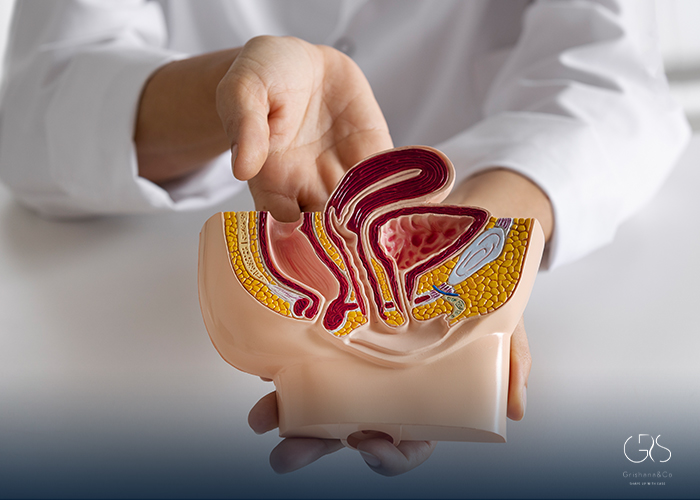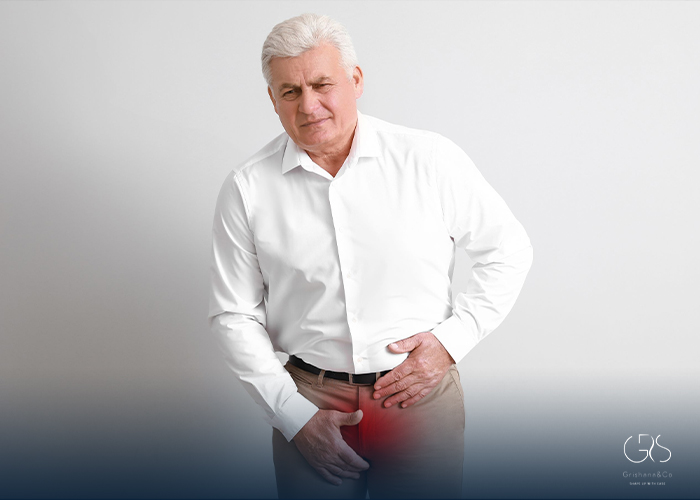Prostate health plays a crucial role in men’s overall well-being, especially with increasing age. While genetics and hormonal factors are beyond control, dietary choices can have a major impact. Understanding the worst foods for prostate health is essential, as research shows that certain eating habits can trigger inflammation, disrupt hormone balance, and contribute to metabolic issues that elevate the risk of prostate diseases such as enlargement, prostatitis, or even cancer.
Why Diet Matters for Prostate Health
The prostate is sensitive to metabolic and inflammatory changes in the body. Studies show that diet plays a role in shaping inflammation, oxidative stress, hormone regulation, and immune function. Below are the key mechanisms through which diet can influence prostate health:
- Inflammation and oxidative stress: Diets high in refined sugars, processed fats, and red meat increase oxidative damage and chronic inflammation, which can promote prostate enlargement and cancer.
- Hormonal effects: Certain foods can raise levels of insulin and IGF-1 (insulin-like growth factor), which may promote prostate cell growth.
- Metabolic syndrome: Unhealthy dietary patterns contribute to obesity and insulin resistance—conditions strongly associated with more aggressive prostate cancer and worse urinary symptoms.
- Carcinogenic compounds: Overcooked or charred meats can produce chemicals that damage DNA, increasing cancer risk.
- Bladder irritation: Spicy foods, caffeine, and alcohol may aggravate lower urinary tract symptoms such as urgency and frequency.
Understanding these processes helps explain why some foods earn a spot on the list of the worst foods for prostate health.
The 8 Worst Foods for Prostate Health
1. Red Meat (Especially Well-Done or Charred)
Red meat—including beef, pork, and lamb—is one of the most consistently cited worst foods for prostate health. High-temperature cooking methods such as grilling or frying create harmful compounds known as heterocyclic amines (HCAs) and polycyclic aromatic hydrocarbons (PAHs). These substances can damage DNA and promote cancerous changes in prostate cells.
Additionally, diets rich in red meat are often high in saturated fat, which contributes to inflammation and hormonal imbalance.

Better alternatives:
- Choose lean poultry, fish, or plant-based proteins such as lentils and beans.
- Use low-temperature cooking methods like baking, steaming, or stewing.
- Reduce portion sizes of red meat to occasional servings.

2. Processed Meats (Sausage, Bacon, Deli Meats)
Processed meats are another category among the worst foods for prostate health. These foods are often preserved with nitrates, nitrites, and other additives that can form carcinogenic compounds when metabolized.
Regular consumption of processed meats is associated with increased risks of several cancers, including prostate cancer. They also tend to be high in sodium and saturated fats, both of which can worsen inflammation and strain cardiovascular and metabolic health.
Healthier options:
- Replace processed meats with grilled chicken, fish, or plant-based protein.
- Experiment with herbs, spices, or natural marinades for flavor.
- Limit bacon and sausages to rare treats rather than daily staples.
3. High-Sugar Foods and Sweetened Beverages
Excessive sugar intake promotes insulin resistance and systemic inflammation, both harmful to the prostate. Foods like pastries, sodas, candy, and sweetened beverages are often high in calories but low in nutrients.
Men who consume large amounts of sugar-sweetened drinks tend to have higher risks of obesity and metabolic syndrome, which correlate with more aggressive prostate cancer. Chronic hyperinsulinemia (high insulin levels) can also stimulate prostate tissue growth and may worsen benign prostatic hyperplasia (BPH).
Practical changes:
- Replace sodas and juices with water, herbal teas, or sparkling water without sugar.
- Choose whole fruits over sugary desserts.
- Limit added sugars to less than 10% of total daily calories.
4. Full-Fat Dairy Products
Full-fat dairy—such as whole milk, cream, butter, and cheese—often appears among the worst foods for prostate health due to potential effects on hormones and vitamin D metabolism.
Some studies suggest that high calcium intake from dairy might suppress active vitamin D levels, a nutrient known to protect against cancer cell growth. Additionally, dairy consumption can elevate IGF-1 levels, a growth-promoting hormone linked to increased cancer risk.
However, evidence is mixed; while some studies show a link between heavy dairy consumption and prostate cancer, others find minimal associations.
Better alternatives:
- Choose low-fat or plant-based milk options such as almond, oat, or soy milk.
- Use olive oil or avocado as healthier fat sources instead of butter.
- Avoid consuming excessive calcium from supplements unless prescribed.
5. Saturated and Trans Fats
Diets rich in saturated fats (from animal sources) and trans fats (found in processed foods) are consistently linked to chronic inflammation and poor heart health—and may also worsen prostate outcomes.
These fats can influence androgen metabolism and inflammatory signaling, creating an internal environment that favors prostate cell proliferation and tumor growth. They also negatively affect cholesterol levels, which can further disrupt hormone regulation.
How to adjust:
- Replace saturated fats with monounsaturated fats like olive oil or avocado oil.
- Eat more omega-3–rich foods such as salmon, walnuts, and flaxseeds.
- Avoid trans fats entirely; check labels for “partially hydrogenated oils.”
6. Alcohol
Excessive alcohol intake is another major contributor to poor prostate health. Alcohol increases oxidative stress, interferes with hormone balance, and depletes essential nutrients such as zinc—an important mineral for prostate function.
Men who consume high amounts of alcohol are more likely to experience inflammation, urinary tract irritation, and potentially a higher risk of aggressive prostate cancer. Alcohol also worsens sleep quality and may reduce testosterone levels when consumed chronically.
Tips for moderation:
- Limit alcohol to no more than one drink per day.
- Avoid binge drinking or daily consumption.
- Stay well-hydrated when drinking.

7. Caffeine and Caffeinated Drinks
Caffeine is a natural stimulant that can irritate the bladder and worsen urinary symptoms such as urgency, frequency, and nighttime urination. While caffeine itself is not carcinogenic, it can exacerbate symptoms of prostatitis or BPH.
Coffee, energy drinks, and certain teas can increase diuresis (urine production) and stress on the urinary tract. Men with prostate enlargement or chronic pelvic pain often benefit from reducing caffeine intake.
Recommendations:
- Gradually reduce caffeine to avoid withdrawal headaches.
- Choose decaffeinated coffee or herbal teas.
- Drink water throughout the day to stay hydrated.
8. Spicy Foods and Other Irritants
Spicy foods—especially those containing chili peppers or hot sauces—may worsen urinary tract discomfort in men with prostate inflammation. Capsaicin, the compound responsible for heat, can irritate the bladder and pelvic tissues, leading to burning sensations or urgency.
While spicy foods don’t cause prostate cancer, they can exacerbate existing conditions like prostatitis or BPH. Acidic foods such as citrus, tomato sauces, and vinegar may have similar effects for some men.
Suggestions:
- Track which foods trigger symptoms and limit them as needed.
- Use mild seasonings like basil, parsley, or turmeric for flavor.
- Avoid irritants during symptom flare-ups.
Practical Approach to Avoiding the Worst Foods for Prostate Health
Adopting a prostate-friendly diet doesn’t mean deprivation. It’s about replacing harmful foods with nutrient-rich alternatives that reduce inflammation and support hormone balance.
Step-by-step approach:
- Eat a plant-forward diet. Fill your plate with vegetables, fruits, whole grains, and legumes to provide antioxidants and fiber.
- Select healthy proteins. Choose fish, poultry, tofu, and beans instead of red or processed meats.
- Use good fats. Include olive oil, nuts, and seeds for essential fatty acids.
- Limit dairy and calcium. Opt for low-fat or non-dairy options and avoid excessive calcium supplementation.
- Cut back on sugar and refined carbs. Minimize sweets, pastries, and white bread.
- Drink wisely. Reduce alcohol and caffeine intake to protect urinary and hormonal health.
- Stay hydrated. Proper water intake supports urinary function and flushes toxins.
- Maintain a healthy weight. Combine good nutrition with regular physical activity.
What the Research Says
Scientific studies provide consistent though not absolute evidence that diet influences prostate health. Observational data suggest that people who eat more plant-based foods and less processed meat have lower risks of prostate cancer progression.
However, researchers caution that most findings are associative, not causal. Randomized controlled trials are challenging to conduct in nutrition science, so recommendations rely on the best available evidence. Still, the weight of current research supports limiting these eight food categories for optimal prostate well-being.
(I recommend that you read about the prostate cancer diet)
Caveats and Individual Differences
- Not all men are affected equally. Genetic factors, hormone levels, and lifestyle can alter how diet impacts prostate function.
- Moderation is key. Completely avoiding a food isn’t always necessary unless advised by a healthcare professional.
- Evidence evolves. Future studies may refine or revise current understanding.
- Symptom triggers vary. Foods that irritate one person’s bladder or prostate may have no effect on another.
Always consult your doctor or a registered dietitian before making major dietary changes, especially if you have diagnosed prostate disease.
Conclusion
Prostate health depends on a combination of diet, lifestyle, and genetics, but nutrition remains a powerful factor you can control. The worst foods for prostate healthincluding red and processed meats, sugary foods, full-fat dairy, trans fats, alcohol, caffeine, and spicy irritants—can aggravate inflammation, hormone imbalance, and urinary discomfort.
Replacing these with plant-based, anti-inflammatory foods can improve overall well-being, reduce disease risk, and support optimal prostate function. A mindful, balanced diet paired with regular exercise and medical checkups provides the best foundation for lifelong prostate health.
Sources
- Mayo Clinic, Prostate cancer prevention: Ways to reduce your risk Print
- UCSF Urology, Health and Wellness: Living with Prostate Cancer
- Prostate Cancer UK, What foods should I eat or avoid if I have prostate cancer?








